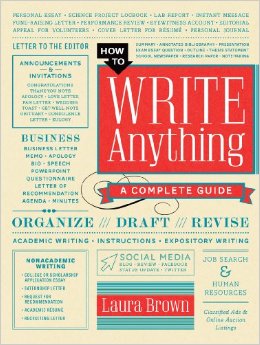Book reviewing used to be the purview of the elite. Now, thanks to the internet, everyone’s a critic. Your online book reviews can make a real difference: people almost always scan the reviews of a book before they make a purchase decision, and your insights can be a big help.
We’re all familiar with the rant review — the one that either adores or despises the book. Writing a balanced review is more difficult, but it’s also more helpful to your fellow readers. As you brainstorm, think from your readers’ point of view. What information would be most useful to them? What do you wish you had known about this book before you read it?
These do’s and don’ts can help:
Do
- Include some description of the book as well as your opinion. Put the book in context.
- Be specific. Say why you liked or disliked the book. Throwing around adjectives like “terrific” or “disappointing” doesn’t really tell the reader anything about the book. What exactly what terrific? What was disappointing?
- Consider the projected audience for the book. Was it written for a specialist audience? A general reader? What kind of reader would get the most from this book?
- Take a stand. The ultimate point of a book review is to make a recommendation. Your verdict doesn’t have to be an absolute yes or an absolute no. Offering a nuanced opinion of a book often makes a more interesting review.
- Give your review a title that reflects the content of the review. Don’t just use the book’s title as the title of your review.
Don’t
- Don’t go on too long. Unless you’re writing for the New York Review of Books or the Times Literary Supplement, your readers are probably not looking for an article-length review. Online book reviews should be brief and concise.
- Don’t fall into the trap of summarizing the book. Provide just enough summary so that your points are clear to your readers.
- Don’t trash the book because it wasn’t what you expected. Unless the book was misrepresented, it’s your responsibility to understand what you’re buying before you buy it. Trout Fishing in America isn’t really about trout fishing, and Fear of Flying is not for nervous travelers.
- Don’t spoil it. If you’re reviewing a work of fiction, don’t give away key plot points or the ending of the story.
- Don’t be nasty. If you didn’t enjoy the book, don’t be insulting or snide. Let your reader know calmly and unemotionally why you were disappointed.
- Don’t give the book a bad review if you’re really mad about something else. If you bought the book online and experienced bad customer service, don’t take it out on the poor author with a one-star review and a rant about shipping delays.
In this new, more democratized world of book reviewing, you have a big responsibility — both to authors and to your fellow readers. Book reviewing online can be loads of fun, and if you provide really useful insights, you might even develop a following as a reviewer!
© 2014 Laura Brown, author of How to Write Anything: A Complete Guide
Do you agree with this points? What is important to you when reading a book review? What is hardest for you in writing a good book review?
 Author Bio: Laura Brown, PhD, author of How to Write Anything: A Complete Guide, has taught writing to just about everyone — from corporate executives to high school students. Her expertise encompasses instructor-led training, individual coaching, classroom teaching, and e-learning development. She has more than twenty-five years’ experience providing training and coaching in business writing, and she has also taught composition and literature at Columbia University. She lives in New York.
Author Bio: Laura Brown, PhD, author of How to Write Anything: A Complete Guide, has taught writing to just about everyone — from corporate executives to high school students. Her expertise encompasses instructor-led training, individual coaching, classroom teaching, and e-learning development. She has more than twenty-five years’ experience providing training and coaching in business writing, and she has also taught composition and literature at Columbia University. She lives in New York.
For more information please visit http://www.
Great article! I love your tips – especially the one about using a descriptive title. I’m guilty of using just the book’s title and author and need to work on this!
I also liked your tips about how to constructively write negative reviews – I tend to post critical reviews (rather than just choosing not to write about a book I didn’t like) and I’m trying to make sure I do it in a non-nasty, constructive way.
I also get annoyed when the first 3/4 of a review is plot summary and the last 1/4 is the actual review – I tend to skip all the plot stuff!